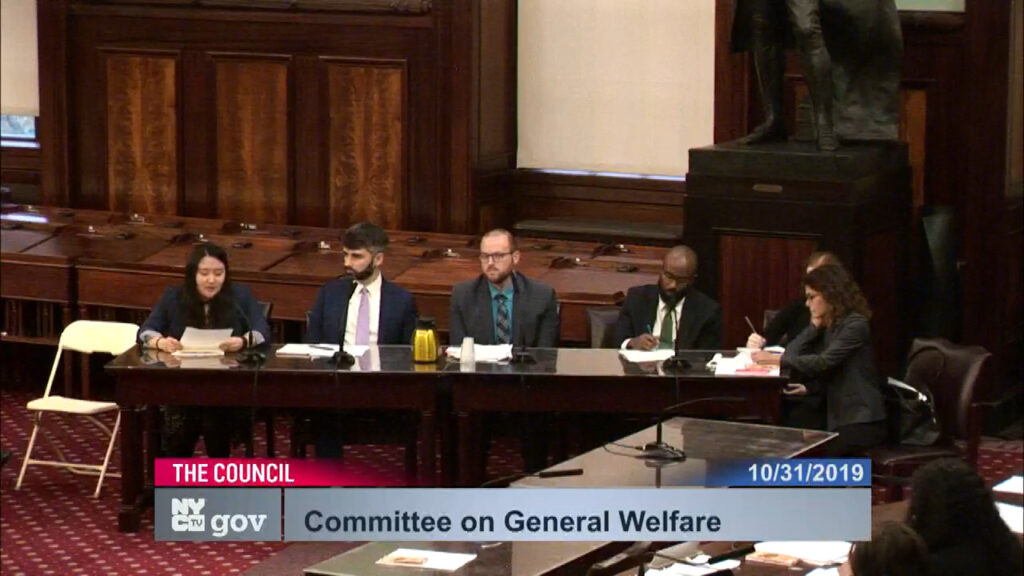
NDS Parent Advocate Ayami Hatanaka testified before the Progessive Caucus of City Council last week on the impact of the State Central Registry (SCR) on Harlem Parents. The caucus has put forward an ACS Accountability Package, and Hatanaka highlighted the necessity for all parents to have representation at SCR hearings. Read her full testimony below.
Ayami Hatanaka Testimony 10/31/2019
Good afternoon. Thank you for having this hearing and for the opportunity to testify on these important issues. My name is Ayami Hatanaka, and I am a parent advocate at the Neighborhood Defender Service of Harlem. In my role, I work with parents as an out-of-court advocate and work on a team with each client’s attorney. I also represent clients at administrative hearings for their appeals regarding the State Central Registry. And today, I will specifically focus on how the State Central Registry impacts parents in Harlem, and how the proposed bills could help create a more equitable process.
A few weeks ago, I sat in the waiting area of the special hearings section of the state building on 125th street, with my client sitting next to me. I had thoroughly prepared my client, and we had discussed what our strategy for the hearing would be, as well as potential outcomes. I worked hard to put together our evidence and to prepare for the hearing. As we waited, I noticed a man next to us. He was by himself, without a lawyer or advocate. The agency lawyer – his adversary in this proceeding – came out and asked whether he would be presenting evidence at his own hearing. This man, who did not appear to understand English, attempted to answer through an interpreter – but it was unclear to me whether the man understood the question, or what the process would be or look like.
There was no significant difference between my client and this man. Both of them should have had access to knowledgeable representation that could help them navigate the difficult process of a hearing. And yet, my client was represented by an advocate, under the supervision of an experienced attorney.
I am in no way undermining the importance of parents’ voices and perspectives, but there is no reason one person should not have access to the resources of representation while another person does. Furthermore, individuals whose cases do not end up in family court, but are still investigated and marked as indicated in the State Central Registry, should have the same opportunity and access to representation at a hearing as well. Proposed Laws 1715, 1729 and Resolutions 1057 and 1066 are a way for city council to take direct action to right this wrong.
It is important to note that having an indicated case in the SCR can create significant barriers to employment for up to twenty-eight years. That is the majority of time for a person’s career. This issue disproportionately affects low-income black and brown communities and inflicts severe economic consequences, keeping families in poverty and at high-risk of continued ACS involvement because of the conflation between poverty and neglect. Although the trauma of family separation will forever affect a family, the weight of having one’s name on the SCR with an indicated case, can be removed through a more just and fair process. The proposed laws are a step in the right direction.
Watch Hatanaka’s testimony in full here, beginning at 03:00:44.
